What is happening to the British government, and why did Boris Johnson resign?
LONDON — Prime Minister Boris Johnson lost his battle for political survival after a string of scandals created a leadership crisis in the British government.
It comes days after two senior members of his Cabinet announced their resignations, causing a wave of departures from positions in government. The most recent controversy — Johnson’s handling of sexual misconduct claims against the former deputy chief whip — caused widespread dissatisfaction from his own Cabinet ministers and led to the Conservative prime minister’s resignation.
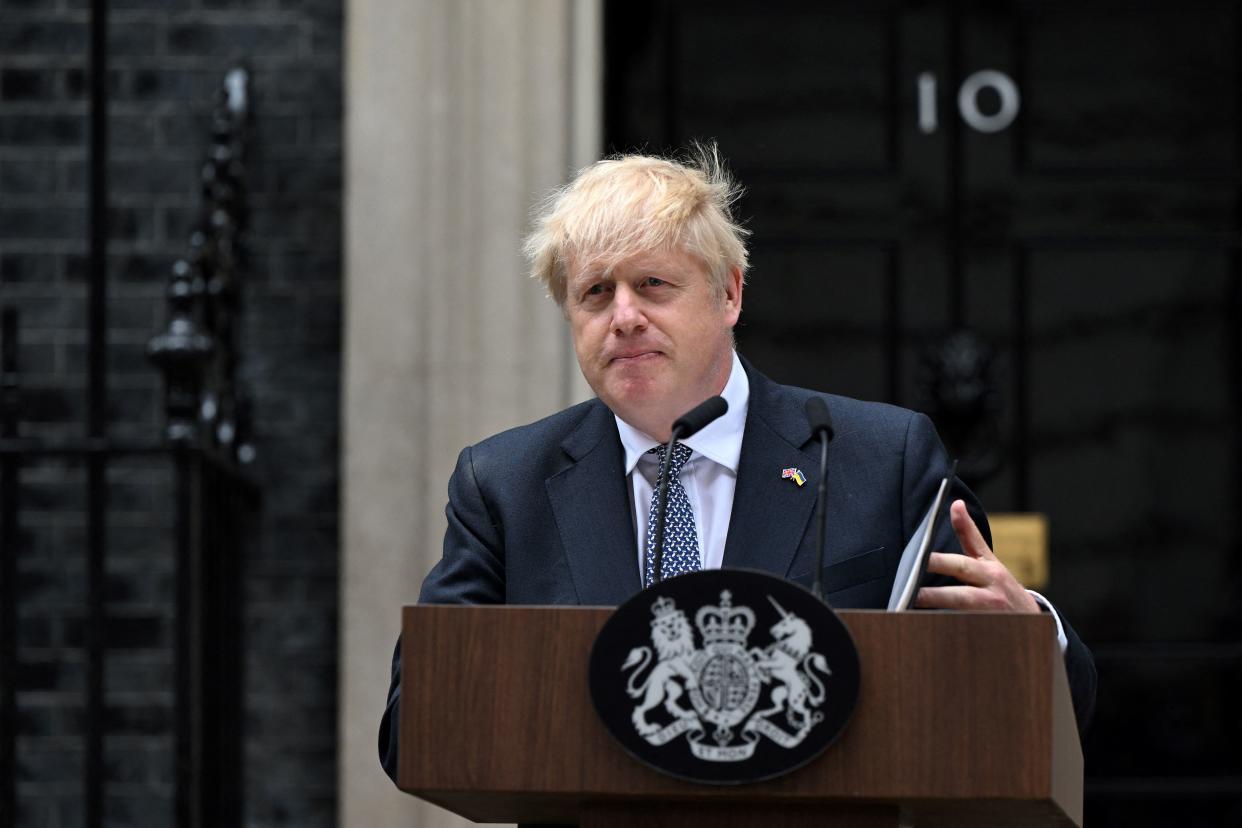
What's going on in the U.K.?
In less than 48 hours, Johnson’s premiership collapsed after he was hit with the resignations of more than 50 members of Parliament. Some 59 Cabinet ministers, as well as junior ministers and aides, had quit their positions by the time it was reported that he would announce his resignation.
In numerous letters to the prime minister published on Twitter, ministers wrote that they had withdrawn their support for their leader and urged him to step down. However, he vowed to "fight on." A source from the government told Sky News on Thursday morning that Johnson did “not intend to resign.”
The night before, a delegate of Cabinet ministers met with the prime minister at his residence at No. 10 Downing St. in London, urging him to resign. Reports stated that Chancellor of the Exchequer Nadhim Zahawi, who had only been appointed to the position hours earlier, as well as Transport Secretary Grant Shapps, were among the group who pleaded with the prime minister to leave his post.
Hours later, it was announced that Johnson had fired newly appointed Cabinet minister and loyal supporter Michael Gove after he had advised him to quit.
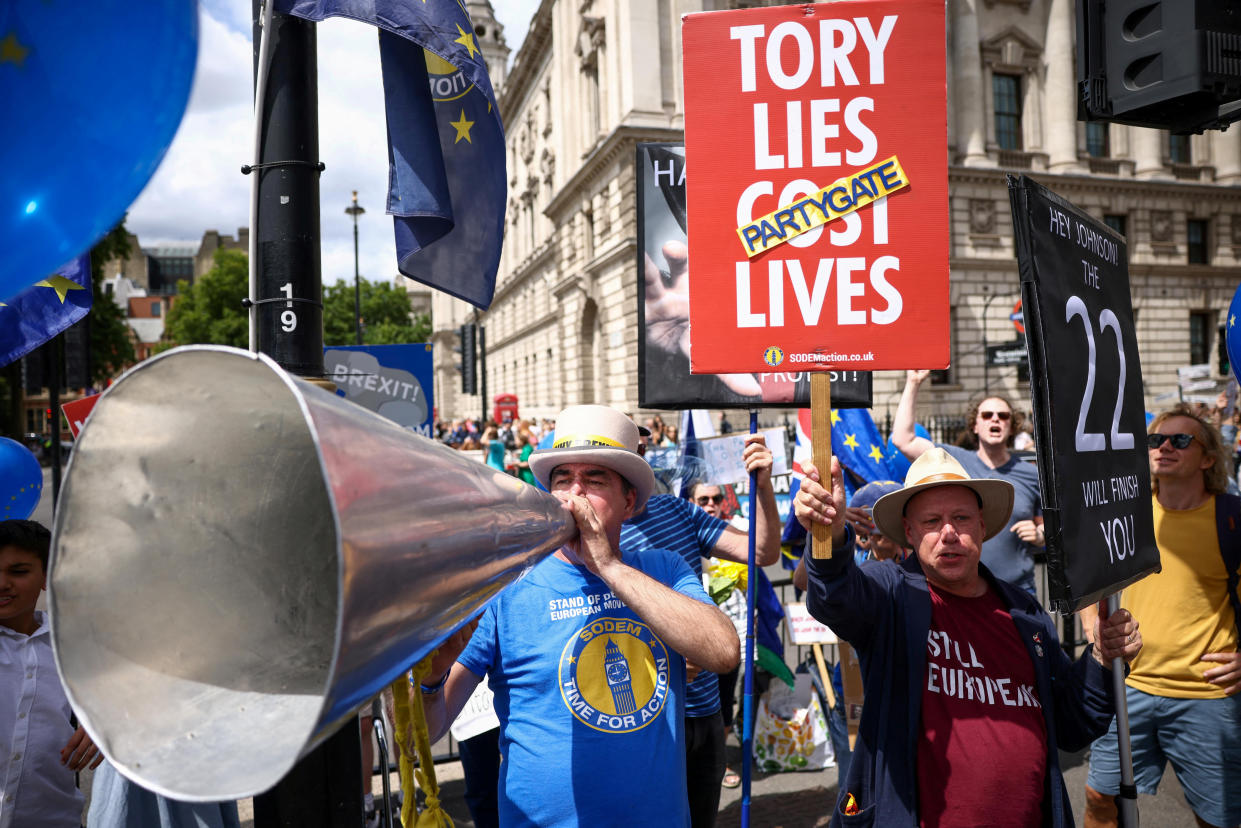
When did Johnson resign?
Speaking outside No. 10 on Thursday morning, Johnson bowed to pressure from his own political party and relinquished his position as leader of the country. A source close to Johnson said he had spoken with the chairman of the 1922 Committee, a group of Conservative politicians who do not hold official positions in government, and agreed to stand down.
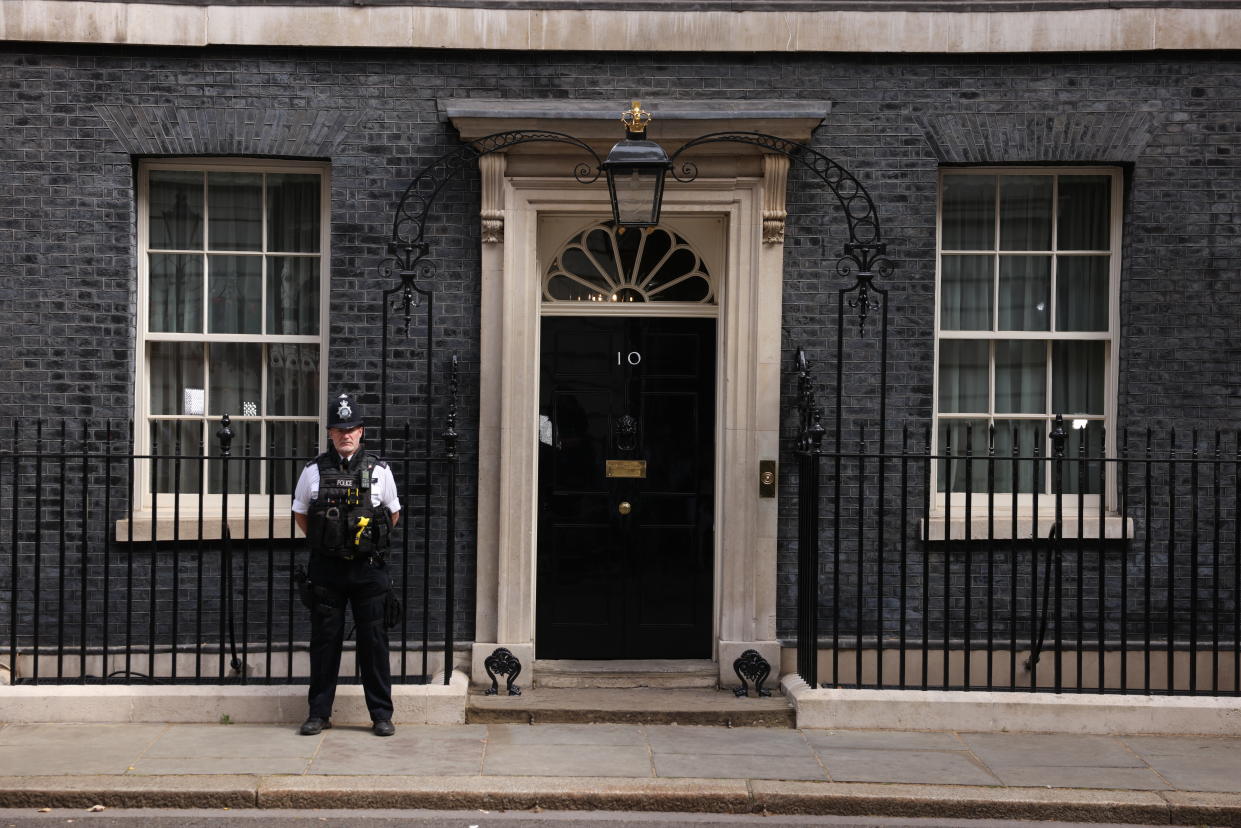
“No one in politics is remotely indispensable,” Johnson said with a group of his supporting colleagues standing near him, as well as his wife, Carrie, and daughter Romy. He defended his stance on staying on as prime minister: He said he thought, “It was my job, my duty, and my obligation to you.”
Johnson said he would continue to carry on as prime minister until a new Conservative Party leader has been chosen. That is expected to happen before the party conference in October.
Posting to Twitter hours after his appearance in front of No.10, Johnson thanked the British public for the opportunity to serve as prime minister and reiterated that he would continue to serve the country until his successor was chosen.
However, a number of members of Parliament are calling for a stand-in prime minister in a bid to stop Johnson from continuing as leader until the fall.
Opposition leader Keir Starmer threatened to call a vote of no confidence in the government if Johnson is allowed to “cling on” as prime minister. “He needs to go completely,” the Labour Party leader warned. “None of this nonsense about clinging on for a few months. He’s inflicted lies, fraud and chaos in the country. We’re stuck with a government which isn’t functioning in the middle of a cost-of-living crisis.”
For a man who was once described as a “greased pig” by a former party member for his ability to survive various situations, it appears the prime minister was unable to maneuver his way past the flood of resignations.
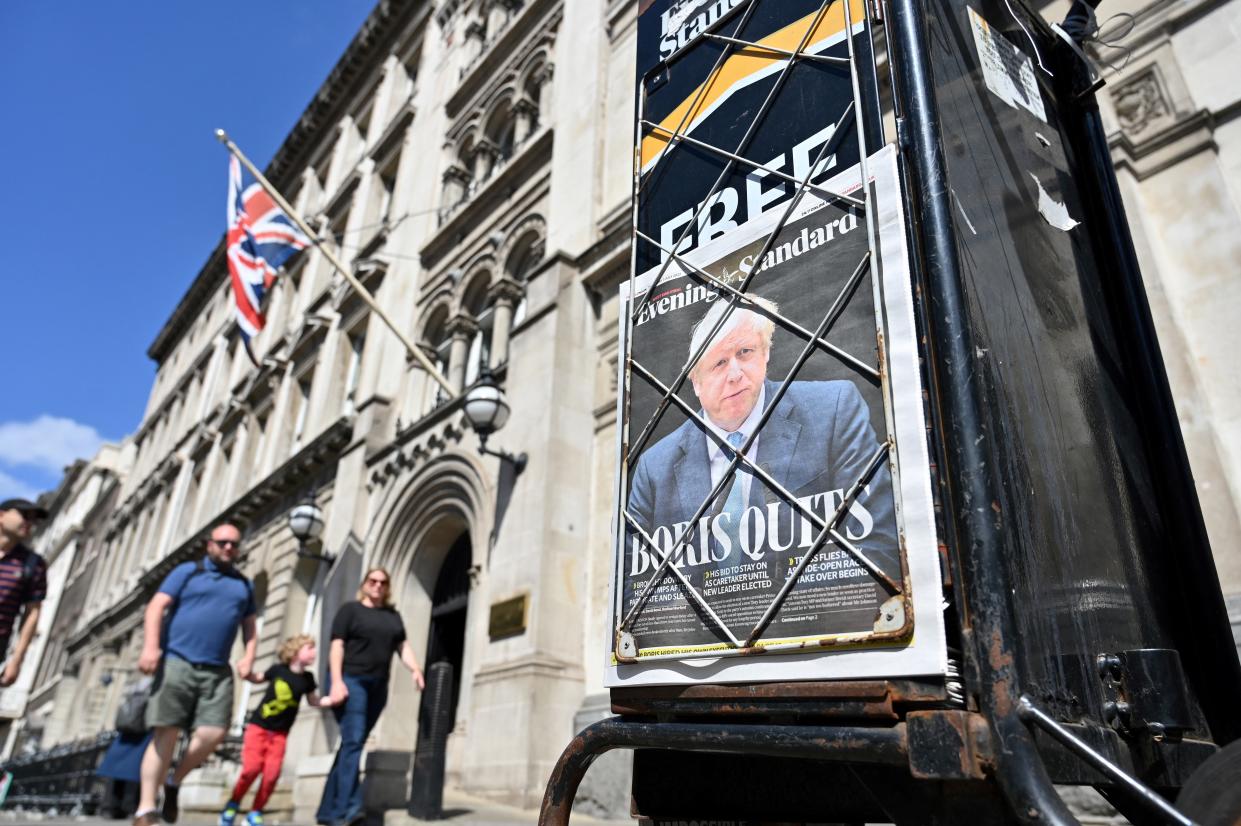
Why resign now?
Johnson’s premiership has been plagued by scandals that range from “Partygate,” where he broke COVID lockdown rules (Johnson is the first ever sitting prime minister to have been found to have broken a law while in office), to unlawfully closing Parliament in 2019 before Britain’s deadline to leave the European Union.
In June alone, the prime minister’s anticorruption champion, John Penrose, resigned over Johnson's breaking the ministerial code regarding “Partygate.” A leading British newspaper alleged that when Johnson was foreign secretary in 2018, he tried to appoint his then mistress, Carrie, as his chief of staff with a salary equivalent to $122,000 (the story soon disappeared online), and a second ethics adviser resigned.
But it all became too much for Conservative politicians when Downing Street announced on Tuesday that Johnson had forgotten he had been briefed about the alleged sexual misconduct in 2019 of a politician whom he appointed to a senior position in February.
Chris Pincher, who resigned from the post last week after he was accused of sexually assaulting two men at a Conservative Party club, had complaints of a similar nature made about him in 2019 by a “group of individuals.”
Who are the other politicians who resigned?
On Tuesday, two of Johnson’s most senior ministers resigned due to what they described as a lack of confidence in his leadership.
Chancellor of the Exchequer Rishi Sunak and Health Secretary Sajid Javid made their respective announcements to the public via Twitter.
“The public rightly expect government to be conducted properly, competently and seriously,” Sunak, the nation’s top treasury official, wrote. “I recognise this may be my last ministerial job, but I believe these standards are worth fighting for and that is why I am resigning.”
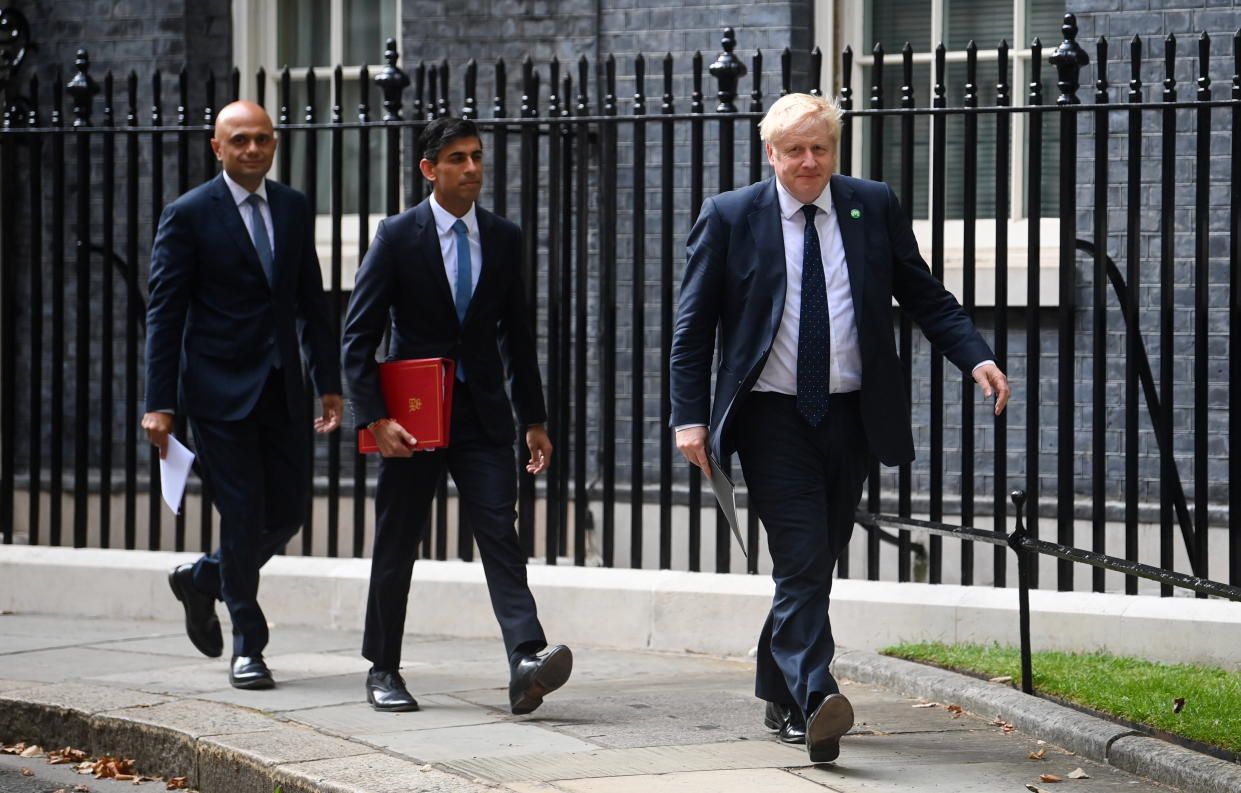
In his letter to Johnson, Javid wrote that he could no longer continue his position “in good conscience.” On Wednesday, Javid made a blistering speech in the House of Commons in which he said he stood by Johnson, but said that “the events of recent months have made it increasingly difficult to be in that team.”
He added: “It’s not fair on ministerial colleagues to go out every morning defending lines that don’t stand up and don’t hold up.”
Fifty-eight other Conservative politicians and government officials sent the prime minister their resignation letters over the past two days, including five junior ministers who coordinated a resignation letter together.
What will happen now that Johnson has resigned?
The Conservative Party will now need to choose a new leader who will become the next prime minister. Members of Parliament will put forward names of people they believe would be suitable for the top position. After a series of votes, two candidates will remain, and then the party will decide which one will be the leader.
However, Johnson will continue to run the government until the new leader is chosen.
Who is likely to replace Johnson?
As of right now, it is unclear who will be chosen as the new leader of the Conservative Party. Former Prime Minister John Major wrote to the chairman of the 1922 Committee suggesting that Justice Secretary Dominic Raab should take the role.
The former chancellor, Sunak, has long been tipped as the next leader of the party and therefore the next prime minister. His popularity took a hit earlier this year when it was revealed that his wife had claimed nondomicile status on her tax forms. This meant she saved millions of pounds on tax dividends she had collected from her family’s multimillion-pound IT business in India. Sunak was also fined for attending a party in Downing Street during a lockdown.
Other potential candidates are former Health Secretary Javid, Foreign Secretary Liz Truss and newly appointed Chancellor Zahawi.

